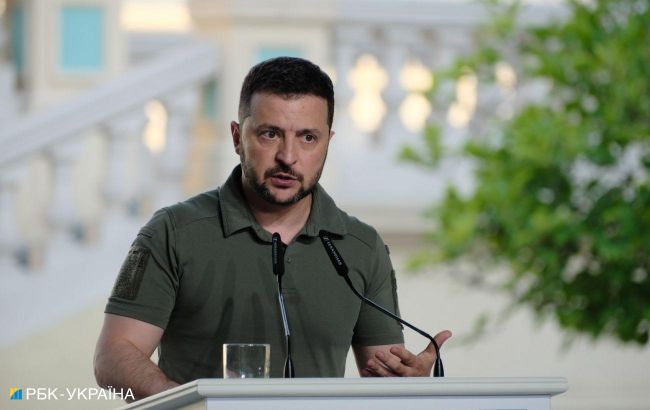Zelenskyy reacts to Putin's visit to Mongolia despite arrest warrant
 President of Ukraine Volodymyr Zelenskyy (Vitalii Nosach, RBC-Ukraine)
President of Ukraine Volodymyr Zelenskyy (Vitalii Nosach, RBC-Ukraine)
Mongolia did not arrest Russian President Vladimir Putin during his visit to the country, and now Brazil wants to invite Putin to the G20 summit. But to do so, it will have to break the law, says Ukrainian President Volodymyr Zelenskyy during the United for Justice conference.
Zelenskyy notes that there are countries that have not ratified the Rome Statute but are global players on the world stage.
“The Group of 20 (G20 - ed.) summit will take place in a few months. It is a very serious event in Brazil. And we have heard signals from the Brazilian authorities that they were planning to invite Putin. But for this to happen, they will have to circumvent the law, the right to destroy and ignore the Rome Statute again. Shouldn't they be held accountable for this?” the president said.
He also commented on Mongolia's refusal to arrest Putin during his recent visit to the country.
“It is the responsibility of the entire world to stop the degradation of the legal system, to prevent the destruction of those norms that still remain. The system of law should and must work in such a way that the Rome Statute, and in particular the warrant of the International Criminal Court issued against the main Russian criminal, really limit him and already ensure his isolation,” he said.
Zelenskyy called on the international community to unite for justice to bring the aggressor state and its political and military leadership to justice.
Backstory
Back in April, the media reported that the government of Brazilian President Luiz Inácio Lula da Silva was trying to organize a visit of Russian leader Vladimir Putin to the G20 summit to be held in Rio de Janeiro on November 18-19.
The Brazilian government has sent its opinion on Putin's visit to the UN International Law Commission. According to media reports, this body is currently working on developing provisions on immunity for heads of state.
The idea is that the leaders of countries should not be prosecuted or subject to lawsuits during their international visits.

